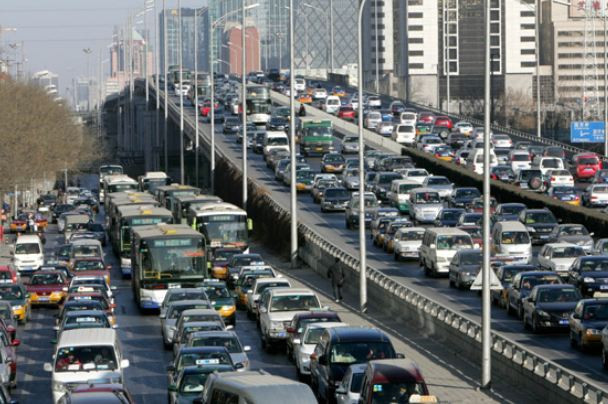China's battered car dealers have received the market stimulus they claim they need to avert the first annual drop in sales since the 1990s.
China's central government has given in to the dealers' demands by granting their proposal to slash by half the 10% tax levied on car purchases. China's car sales plummeted by 11.6 percent to 2.39 million units in September, the largest sales drop in seven years. Previous to September, car sales fell 3.8 percent in August and 4.0 percent in July.
Financial analysts cited sluggish retail demand; bloated dealership stocks and the escalating trade war with the U.S. for a projected drop in car market growth to -0.3 percent this year.
The unwelcome loss in sales is again stoking fears the world's biggest car market might contract for the first time in over 20 years. Car dealers are also fearful the worsening trade war with the United States might further slow down China's already weakening economy, and reduce the already weak demand for vehicles.
Two weeks ago, the China Automobile Dealers Association (CADA) submitted documents to the Ministry of Finance and Ministry of Commerce proposing a 50% cut in the 10% auto purchase tax. CADA said the tax cut is needed to revive struggling and steadily weakening sales.
CADA told officials from both ministries that China's overall car market remains tepid. Dealers are struggling to maintain sales volumes as they feel pressure from both car makers and cash flow.
In its proposal, CADA wanted a 50 percent cut to the purchase tax on cars with engines of 2.0-liter capacity or below. This will be similar to the tax rebate on smaller-engine cars that helped rev up sales growth in 2016.
CADA secretary general Xiao Zhengsan said dealers might a slight decline this year. Measures like promoting the rural car market or adjusting VAT for second-hand cars, however, could improve sales..
Industry experts noted that car sales soared when China last cut the purchase tax in 2015. China's auto sales jumped by 13.7 percent in 2016, due mostly to the tax break. Sales, however, began to slow when the tax rebate was phased out in 2017.
Car dealers then began to feel the pain. One dealer complained that almost every dealer is doing the same thing, which is slashing prices. He said they lose money from selling cars, so if they sell too many cars, they simply lose more money.





